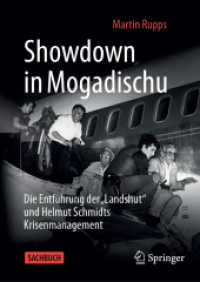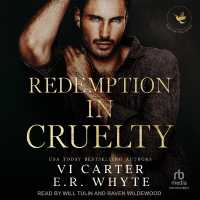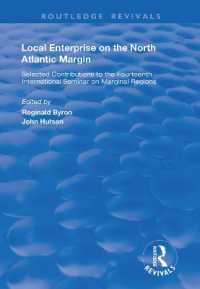Full Description
This book provides an interdisciplinary collection of theoretical and methodological contributions critically exploring the connections between leisure and wellbeing. It expands the field of leisure studies to highlight the contribution of international scholars to a developing agenda in leisure and wellbeing research. Authors from many different countries engage with the complexity of subjective wellbeing through the lenses of diverse leisure cultures. Collectively, the chapters represent rigorous high-quality social science research, informed by innovative methods that can build knowledge about the intricate ways leisure cultures and subjective wellbeing are related to each other. The book serves to deepen the knowledge and understanding of the complexity of wellbeing experiences, and the diversity of contexts in which wellbeing is enhanced or reduced through taking part in leisure pursuits.
The chapters in this book were originally published as a special issue of the journal Leisure Studies.
Contents
Introduction: Leisure and wellbeing 1. Questioning hierarchies in knowledge and advocacy for well-being policy: re-using overlooked free text data reveals the importance of leisure to people's understanding of well-being 2. Adventure recreation and subjective well-being: a conceptual framework 3. Using urban woodlands and forests as places for improving the mental well-being of people with dementia 4. Locating leisure as the route to well-being: challenges of researching women's leisure in Turkey 5. Participatory music-making and well-being within immigrant cultural practice: exploratory case studies in South East Queensland, Australia 6. Coastal blue space and wellbeing research: looking beyond western tides 7. The Kumulipo, Native Hawaiians, and well-being: how the past speaks to the present and lays the foundation for the future 8. The relationships between leisure and happiness-A graphic elicitation method 9. Empirical investigation of the relationship between serious leisure and meaning in life among Japanese and Euro-Canadians 10. Empirical research on leisure and spiritual well-being: conceptualisation, measurement and findings 11. Well-being and leisure-time physical activity psychosocial factors predict physical activity among university students







